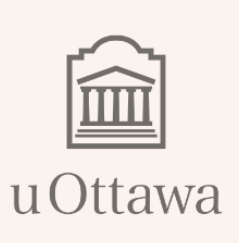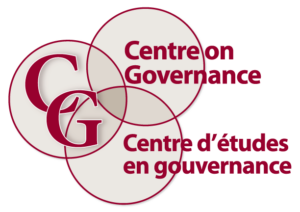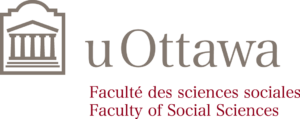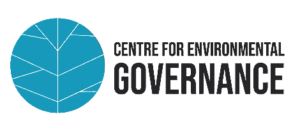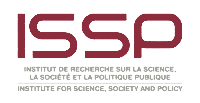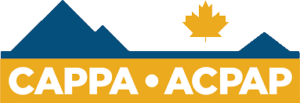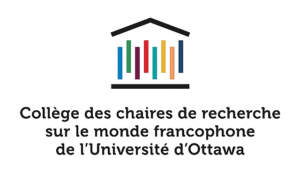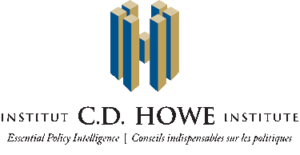Current chair
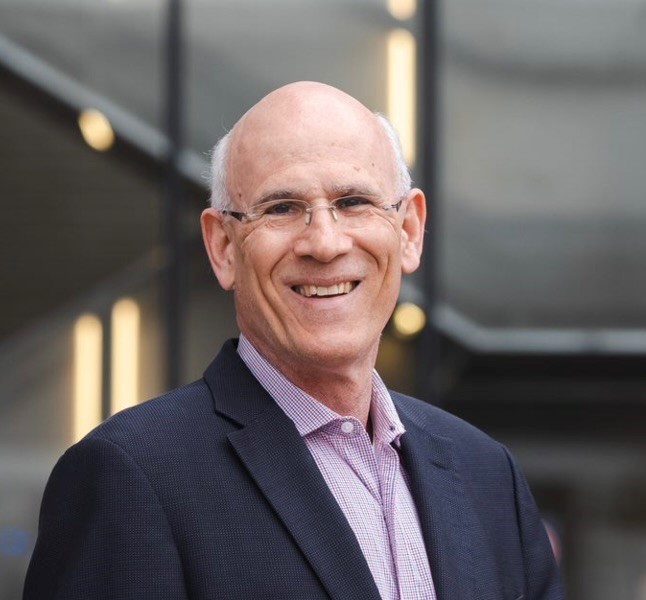
In July 2022, the University of Ottawa welcomed Michael Wernick as the Jarislowsky Chair in Public Sector Management.
Since his appointment, Michael Wernick has made significant strides in exploring how governance and management intersect, positioning the Chair at the heart of the national discussion on how to improve the quality of the public sector in Canada.
By raising the profile of the Chair as a resource that decision makers and journalists turn to, Michael has helped to identify – and call attention to – enduring difficult issues in public sector management.
He continues to advocate for greater attention, effort and investment in public sector capabilities. As Chairholder, he is also helping to boost the supply chain of idea generation and discussion by strengthening networks and weaving connections between think tanks, academic colleagues, and journalists as well as working and retired civil servants across all levels of government in Canada.
This increasing recognition has led, among other things, to Michael Wernick being invited to contribute as an expert, alongside representatives of more than 30 countries, at the 2024 Public Service Leaders Roundtable hosted in Paris by the Organisation for Economic Co operation and Development (OECD). There he drew the distinction between “what” public services do and “how” they do it. He called for senior public service leaders to consider the next decade as an opportunity for more serious and sustained attention to the latter, especially at a time when they will be challenged by eroding trust in institutions and erosion of rational discourse.
Michael Wernick argued that: “In this context the “how” matters more than ever. Looking to the decade ahead, successful public sector leadership is going to draw on personal skills and attributes, but also values and mindsets. Resilience will matter. Progress toward strategic goals will require an elusive combination of curiosity, dogged persistence and tactical agility. […]

Career in Federal Public Service
Michael Wernick’s distinguished 38-year career as one of the key leaders of Canada’s world class federal public service culminated in serving from 2016 to 2019 as the 23rd Clerk of the Privy Council and Secretary to the Cabinet.
With 28 years as an executive in the federal public service, including 17 years in the community of deputy ministers, and three as clerk, Mr. Wernick is one of Canada’s most experienced and influential public sector leaders. He appeared frequently at parliamentary committees, participated in dozens of intergovernmental and international meetings, and spoke at many conferences. He worked closely with three prime ministers and seven ministers and attended close to 300 meetings of cabinet and its committees. He was the key public servant at the Privy Council Office for three transitions between prime ministers.
He joined the Public Service of Canada in 1981, working in various departments and agencies, including the Department of Finance Canada, Consumer and Corporate Affairs Canada and the Privy Council Office.
Mr. Wernick assumed several senior leadership roles, including Assistant Deputy Minister and Associate Deputy Minister at Canadian Heritage in 1996, Deputy Secretary to the Cabinet, Plans and Consultations, at the Privy Council Office in 2003, Deputy Minister at Aboriginal Affairs and Northern Development Canada in 2006 and Senior Advisor at the Privy Council Office in 2014. He was appointed Deputy Clerk of the Privy Council and Associate Secretary to the Cabinet later that same year.
Michael also served on the Board of Governors of Carleton University from 2010 to 2017. In 2012, he received the Queen Elizabeth II Diamond Jubilee Medal.
Since leaving the federal public service, Michael has provided advisory services and mentorship to emerging leaders and a new generation of students. He is a senior strategic adviser to MNP Digital. From 2019 to 2022, he was a fellow and adjunct professor at the Carleton University School of Public Policy and Administration.
On public sector leadership, Michael Wernick states:
/ /
Perhaps the key issue, where failure is not an option, is trust. Public service leaders can help reinforce the confidence and resilience of their governments and their own workforce. They can make their services reservoirs of truth and factfulness. Clarity and candour in communicating, in both directions, will be a key skill to develop.
Public service leadership can draw on rich histories of how their services have risen to meet great challenges and how they have learned and adapted to a changing world. They can tell the stories of how their services make a difference. The point is not to deny that change is happening or to negate the breadth and depth of the challenges that lie ahead but to keep alive that underlying drive to serve – to serve governments and citizens – and the drive to bend history toward a better future.”

Click on a topic to learn more.
Chairholder’s priorities and vision
Michael Wernick shared his thoughts with the University of Ottawa’s Gazette upon taking on the role of Jarislowsky Chair in Public Sector Management.
The Chair as a bridge between government and universities
As Chair, I think I can bring something to bear on issues of public management and how government works (as distinct from what government does, whether carbon pricing, childcare, or international affairs, which are the domain of democratic policymaking). I was an executive in the federal service for 28 years and, as such, a consumer of the products of universities and thinktanks through their publications, conferences, or contracted work.
I also have a great deal of experience working with Indigenous leaders and organizations. I hope that will be helpful in the coming years. It’s very much about dialogue, respectful listening, and working toward solutions, whether on childcare, AI, the arts, or climate change. Solutions must be co-developed and brought forward in a very complex environment, one with multiple players.
Ottawa: a supercluster of public management
One of the things that appeals to me about being the Jarislowsky chairholder at the University of Ottawa is that the National Capital Region is a supercluster of public management. We have excellent universities, with lots of people that work and think about the public sector. We have thinktanks, like the Institute on Governance and the Public Policy Forum. We have lots of retired and semi-retired public servants and people who have thought about the issues and worked on them. We also have access to the embassies of other governments, to the senior leadership of the existing public service, and to a network of people who work on public policy management right across the country.
In 2022, the public sector in Canada is facing recurrent challenges in a new context, as well as entirely new challenges. The next few years present an opportunity to reflect on the lessons of the recent past and on prospects for the future. New cohorts of political and public service leaders will set a new course.
The Jarislowsky Chair in Public Management is well placed to contribute to the discussion.
Freedom and time to address difficult questions
I am hoping to have more freedom to probe what are called the wicked issues. If we had an independent Royal Commission on the public sector in Canada, what questions would it be asking? Those are the kinds of questions I hope to have the freedom and time to poke into, even when they aren’t always comfortable. Interdisciplinary or multidisciplinary work in a university setting can look for the intersections and the cumulative effects of different issues.
The policy issues are plentiful: climate change, mental health, Indigenous reconciliation, and so on, but so are the management issues. The pandemic gave us new challenges and new opportunities: people learning how to work from home, working on collaborative platforms, etc. Some forms of public sector work lend themselves to new modes, others don’t. If you’re running a border station or penitentiary or do aircraft inspections, you can’t work from home.
Some of the challenges for public sector management are familiar: making progress in a diverse and decentralized federation; getting politicians to focus more on long-term or long-neglected issues instead of the short-term news cycle; promoting innovation and risk-taking; breaking down silos in a system built for hierarchy and “vertical” accountability.
Part of the agenda has been set by global events and national trends: greater focus on reconciliation with Indigenous peoples; attention to mental health and wellbeing; issues of inclusion; the impetus for greener operations and a contribution to net-zero carbon emissions. The public sector is also buffeted by forces such as declining trust and civility, the rise of disinformation, information overload, and the impacts of social media on social and political discourse.
Understanding what’s new
“Digital government” is now moving from outward-facing services to internal workflows. The pandemic accelerated adoption of collaborative digital platforms for a much greater range of services and internal workflows, shaking up old models of management and opening new possibilities for where and how work gets done.
The overall context, which a lot of the private sector faces as well, is the acceleration of the pace and demands of reactivity. You must respond very quickly to new events, pick up on what’s going on, and decide what needs to be done. You don’t have the luxury of time, testing, and reflection. You must make the call faster than was the case 20 or 30 years ago.
Government wants the public sector to be more effective and is open to ideas about how to do this. I can’t guarantee anybody’s going to listen to me, any more than any university Chair, but I think I have a sense of what the issues are.
Giving back to the next generation
I left public service three years ago now—before the pandemic, two federal elections, and a European war. In retirement, I took up a position as adjunct professor at Carleton University and worked with the Institute on Governance and the Global Government Forum, trying to pay back my cumulative experiences to classrooms of public servants or young people. Last year I wrote a book that shares my thoughts on governing in Canada and did a lot of interviews, podcasts, and class visits about it. I don’t come to this new position with preconceived ideas about what should be done. Rather, I enjoy the dialogue and the feedback, interacting with excellent younger public servants and students. So, I think I will learn new things and draw a lot of energy from these exchanges.
Stephen Jarislowsky and Jarislowsky Foundation
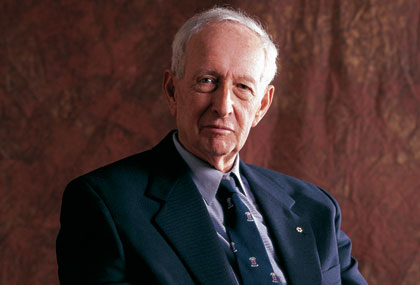
Stephen A. Jarislowsky was born in Berlin, Germany in September 1925. He attended school in the Netherlands and in France then immigrated to the United States in 1941. He attended preparatory school in Asheville, North Carolina, studied mechanical engineering at Cornell University and then served in the US Army. He finished basic training and studied Japanese at the University of Chicago prior to serving in Counter-Intelligence in Japan after the War.
Upon his return to the United States in 1946, he attended the University of Chicago, graduating with an MA and Phi Beta Kappa Honours. He followed this with MBA studies at Harvard Business School, graduating in 1949 with distinction.
He worked three years with Alcan Aluminium in Montreal and briefly returned to the United States prior to starting Jarislowsky, Fraser Limited in June of 1955 in Montreal.
Founder and former Chairman of the investment counselling firm Jarislowsky Fraser Ltd., for 63 years, he directed the growth of the company to become one of the largest and most successful investment management firms in Canada. The firm was sold to Scotia Bank in 2018.
Jarislowsky is a Companion of the Order of Canada, a Grand Officier de L’Ordre National du Québec, and holds honorary degrees from the University of Ottawa, Queens University, the University of Alberta, l’Université de Montréal, McMaster University, Concordia University, Assumption University, l’Université Laval, the University of British Colombia, Simon Fraser University, McGill University, Banff Centre, Haskayne School of Business, the University of Victoria, l’Université du Québec à Montréal, the University of New Brunswick, Carleton University and Guelph University.
Directorships during his lifetime of some 30 companies include, SNC-Lavalin, Canadian Marconi, Abitibi Consolidated, Southam, Unimedia, The Daily Telegraph (UK), Didier Refractories, Swiss Bank Corporation, Canon Canada, Velan Inc., Canfor, Slocan, and former Chairman of Goodfellow Inc.
He is the co-founder of the Canadian Coalition for Good Governance (CCGG), as well as the Institut sur la gouvernance d’organisations privées et publiques (IGOPP). He holds the International Entrepreneur Award from the University of Manitoba, Corporate Director Lifelong Achievement Award, Fellow of the Institute of Corporate Directors and has been inducted into the Canadian Business Hall of Fame.
Mr. Jarislowsky has been active in educational, cultural and charitable activities of many kinds; has endowed forty Chairs across the country, mostly in universities but also in other important Canadian organizations like the Banff Centre, Montreal Museum of Fine Arts, the Vancouver Art Gallery. All are based on ethics and excellence.
He was a frequent contributor to television, radio, magazines and newspapers. He is the author of “The Investment Zoo” which was published in 2005.
The Jarislowsky Foundation
The Jarislowsky Foundation was founded in 1991 by Stephen A. Jarislowsky. The Foundation’s mission is to promote, support and foster excellence and ethics in education, medicine and the arts, and the environment and climate change.
The Foundation supports 48 research Chairs in areas of democracy, governance, public sector management, environment & climate change, Canadian art, and health across Canada. The Foundation supports programs that allow students from diverse backgrounds to discuss contemporary issues with mentors and recognized experts. These programs aim to develop students’ critical thinking skills so that they become leaders with strategic vision and thinking. The Jarislowsky Foundation supports more than 80 organizations a year in the arts and culture, hospital foundations, the community sector and climate change. The Jarislowsky Foundation now donates approximately $9 to 10 million per year.
Jarislowsky Network of Chairs in Trust and Political Leadership
The Jarislowsky Network of Chairs in Trust and Political Leadership was launched to expand knowledge and training in ethical politics, fiduciary responsibility, and democratic governance, with the long-term aim of professionalizing work in Canada’s political and public service sectors.
The Network comprises five Jarislowsky Chairs in Trust and Political Leadership which are based at universities in geographically and politically distinct regions across Canada – British Columbia’s Vancouver Island University, the University of Lethbridge in Alberta, Trent University in Ontario, Université du Québec à Trois-Rivières with École nationale d’administration publique, and Nova Scotia’s Acadia University. The pan-Canadian scope of the Jarislowsky Network of Chairs in Trust and Political Leadership allows Chairholders and their students to collaborate on topics of both regional and national importance.
Find out more about the Jarislowsky Network of Chairs in Trust and Political Leadership.
Past Chairholders
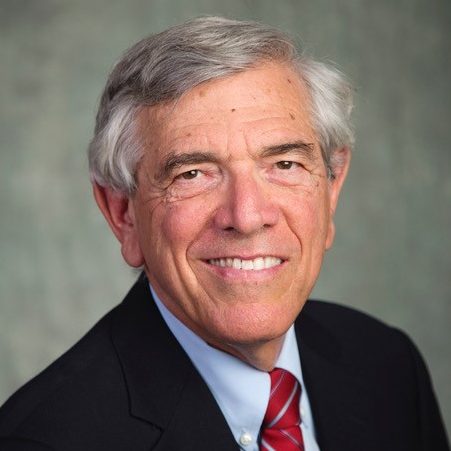
Dr. David Zussman
Dr. David Zussman is the first recipient of the Jarislowsky Chair in Public Sector Management at the University of Ottawa. A leading authority in public service management and policy, his interdisciplinary and evidence-based research has influenced leaders in both the private and public sectors across Canada.
He now acts as an Honorary Senior Fellow at the Graduate School of Public and International Affairs (GSPIA) at the University of Ottawa where he previously also taught and held a variety of positions, including former Director of GSPIA and Dean of the Telfer School of Management.
He previously led the transition team for Prime Minister Chrétien after the 1993 election, served as Assistant Secretary for Program Review and Machinery of Government and Commissioner of the Public Service Commission. Mr. Zussman is currently an Adjunct Professor at the School of Public Administration at the University of Victoria and Chair of the UVic’s Board of Governors. In 2021, Zussman was appointed as a Member of the Order of Canada for a long and distinguished career in academia, government and the not-for-profit sector.
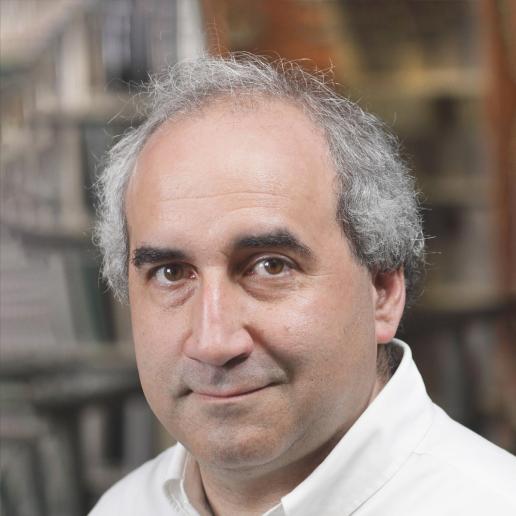
Professor Luc Bernier
From 2016 to 2022, Professor Luc Bernier held the Jarislowsky Chair in Public Sector Management.
He continues to teach at the Graduate School of Public and International Affairs. His research interests include entrepreneurship in the public sector, Quebec’s international relations, and administrative reforms associated with new public management.
In 2007, Dr. Bernier, together with Taïeb Hafsi, was awarded the Mosher Award for the best scientific article published in the Public Administration Review. He served as President of the Institute of Public Administration of Canada from 2005 to 2006. At ENAP, he held the position of Director of Studies in Montreal from 1999 to 2001, and later served as Director of Teaching and Research from 2001 to 2006. Over his career, he has published approximately sixty articles, book chapters, and books.
